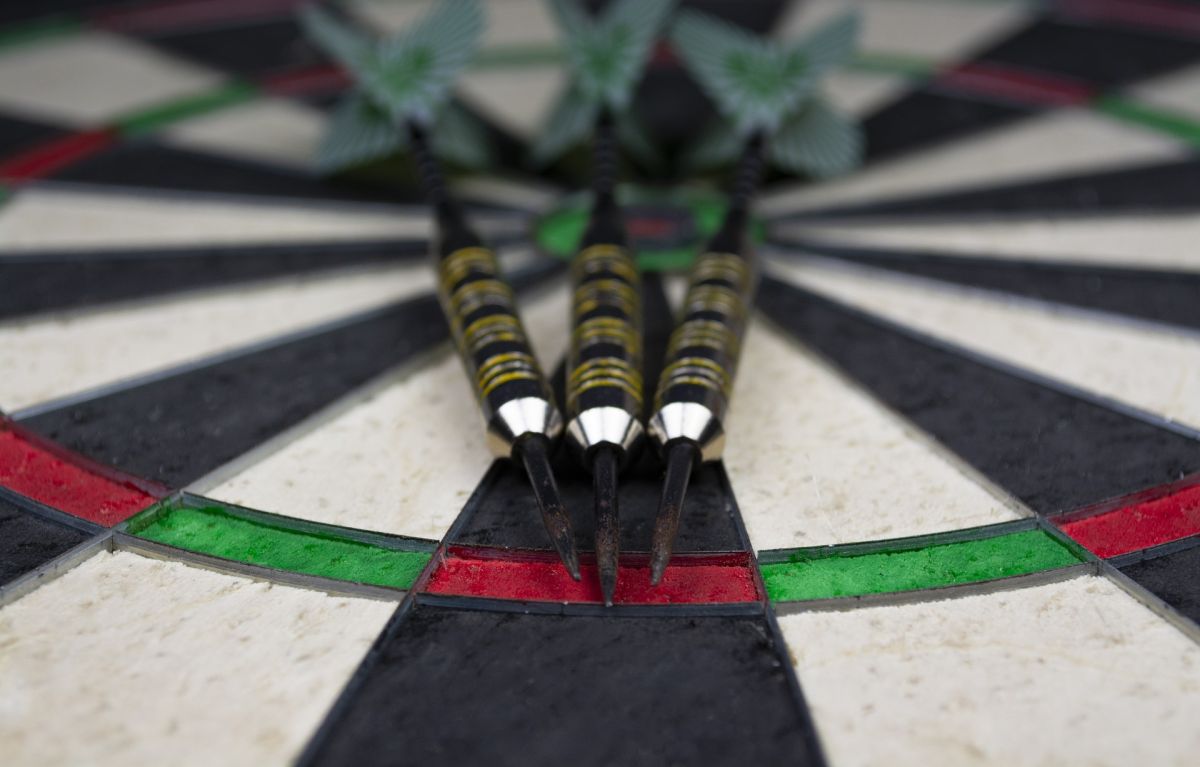Opinion: Unisex sports must capitalise on Fallon Sherrock’s success
By Kate Jackson

Less than two years on from the Professional Darts Corporation’s (PDC) decision to stop using ‘walk-on’ girls at their tournaments, Fallon Sherrock became the first woman to win a match at the PDC World Championship.
Fallon Sherrock’s success at the most recent World Championship (2019) has been rightly applauded by fans and celebrities alike around the globe, especially following her second round win against Mensur Suljovic, who was seeded eleventh in the tournament.
A win for a woman at the tournament has certainly been a long time coming.
Since the PDC’s formation in 1992, women have been allowed to qualify for all of the PDC tournaments but only five women have ever featured at the World Championship.
This number will only grow, however, as the PDC have recently changed their stance on female competitors in the competition. Not only can women continue to qualify through the normal channels, but two positions have been reserved in the event for female competitors.
Sherrock thinks that given more opportunities women will be beating men in the sport more regularly. “I don’t see myself at a physical disadvantage,” she told Radio 5 Live. “We just do not get the recognition or the opportunity to play against these men, so obviously you don’t see it that often. Us women, we can beat these men. We just need more recognition.”
The PDC do not have women’s only tournaments so most female darts players compete in the opposing organisation, the British Darts Organisation (BDO).
The BDO is not as popular or profitable, however, and the female competitors suffer as a result.
Sherrock’s two wins in the PDC World Championship bagged her £25,000 whereas the winner of the BDO’s Women’s World Championship, this year Mikuru Suzuki, received just £10,000.
There have been calls for the PDC to run a women’s tour concurrent with the men’s in order to raise the profile of the game but there has been some hesitation from chief-executive of the PDC, Matt Porter, who wants to make sure the appetite is there.
“We need to make sure that women are keen to be involved in darts. Whether it’s as players, spectators, officials, television viewers, whatever – we need them to feel the door is open to them.”
The problem, as it is generally is when it comes to unisex sports, is that even when it is open to competitors of all genders, there is still an inherent bias or imbalance between men and women. Most of the top female darts players, for instance, do not have the means, financial or otherwise, to give the sport the same dedication as the top men playing in the PDC.
Matt Porter believes “grass-roots participation” has to be the key if more talent like Fallon is to be produced.
But that’s the problem, how do you get that participation?
Snooker, another sport that is open to men and women to compete alongside one another, sees women hindered by the culture surrounding snooker clubs.
Just last year, Rebecca Kenna, who was ranked third in women’s snooker at the time, quit her snooker league after she was barred from playing matches at the Grafton Club and Keighley Cycling Club.
No woman has made it to The Crucible, the venue for the World Snooker Championships, and legendary player Steve Davis does not expect it to ever happen.
“The male of the species has got a single-minded, obsessional type of brain that I don’t think so many females have,” he said back in 2014.
Having to deal with an intimidating environment, in the form of snooker clubs, and comments such as these from the sport’s iconic figures is problem enough for women without adding in the problems of funding and financial incentives.
It seems to be a lose-lose situation when in comes to gender-neutral sports: keep these sports unisex and give women the opportunity to have a higher profile in the sport but also see fewer women competing; or, alternatively, keep these sports segregated, allowing more women to compete, but consequently have a lower profile and less financial opportunities.
The answer, of course, is to try and do both.
Give women the platform in which to compete with men on the main stage while also investing in the women’s game. Giving women a bigger financial incentive means they can rely on the sport for their income and therefore have the means to become more prolific in the game.
This is how talent will be uncovered and allow sports such as darts and snooker to change the ratio of men to women competing in the bigger tournaments.
The PDC have taken a step in the right direction by reserving places for women in events, but they must go further if they are to capitalise on Sherrock’s success and give women a true opportunity to be equal with men in darts and other gender-neutral sports.







